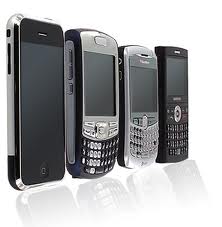Cellphone Searches and the Fourth Amendment – Riley v. California and United States v. Wurie - Podcast
Criminal Law & Procedure Practice Group Podcast
 On Tuesday, April 29, 2014 the Supreme Court held back-to-back hearings on cases testing the authority of police to search the contents of cellphones they take from people they have arrested.
On Tuesday, April 29, 2014 the Supreme Court held back-to-back hearings on cases testing the authority of police to search the contents of cellphones they take from people they have arrested.
Riley v. California involves a San Diego man, David Leon Riley, convicted of shooting at an occupied vehicle, attempted murder, and assault with a semi-automatic weapon. Riley was not arrested at the time of the incident, and he was never positively identified as a participant. A jury convicted him on all three counts largely based on data from a cellphone seized from him at the time of a later arrest, the contents of which were examined without a warrant.
United States v. Wurie concerns a search made of a drug dealer’s South Boston apartment. The residence was discovered and the search made after arresting officers noticed that a phone in suspect Brima Wurie’s possession was getting repeated calls from a number identified on the screen as “my house.” Tracing the telephone number, they located his residence. The inspection of the phone was without a search warrant, and evidence at the apartment was eventually used to convict Wurie of distributing crack cocaine, possessing the crack with intent to distribute it, and owning a gun and ammunition as a felon.
Our expert attended both arguments and offered his impressions to a call-in audience.
Featuring:
- Prof. Orin S. Kerr, Fred C. Stevenson Research Professor of Law, The George Washington University Law School
[Return to the Practice Groups Podcasts menu]






